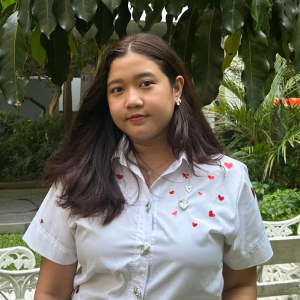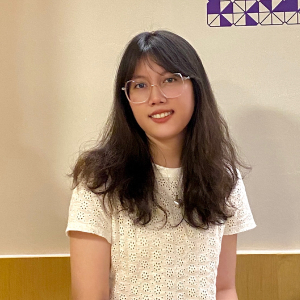Water Engineering and Management (WEM)
PhD Degree

Free consultation for this program
We are ready to help you with your difficulties and processing.
Duration
3.5 years
Study Format
On Campus
No. of Student Mentors
72
Total Tuition Fees
1,495,800 THB





Free consultation for this program
We are ready to help you with your difficulties and processing.
Duration
3.5 years
Study Format
On Campus
No. of Student Mentors
72
Total Tuition Fees
1,495,800 THB





Program
Key information
University
Program structure
Tuition fees
Admissions
Possible Career Pathway
Student's testimonials
F&Qs
ABOUT THIS PROGRAM
Today’s major challenges for water engineers and managers include securing water for people and for food production: protecting vital ecosystems: and dealing with the variability and uncertainty of water in space and time.
The Water Engineering and Management (WEM) field imparts education and training toward an understanding of the complexity of water use and water resources management problems. It offers a balanced curriculum, which covers both the engineering and management aspects of water resource development. Students are trained to acquire knowledge and hands-on practice in tools and techniques to come up with viable and sustainable solutions within the framework of integrated water resources management at the river basin scale.
Water Engineering and Management covers five major areas – Agricultural Water, Coastal Water, Urban Water, Water Resources, and Extreme Events and Risk Management. The courses are designed in such a way that students can specialize according to their interests. Courses on watershed hydrology, hydrodynamics, water resources systems, and concepts in water modeling provide a solid foundation for the advanced courses. The field emphasizes tools and techniques in resource planning and management in addition to laboratory and field practices.
Agricultural Water courses impart knowledge and skills necessary for the development and management of water resources for agriculture. They address various multi-disciplinary issues in the planning, design, implementation, operation, and maintenance of irrigation and drainage projects and land and water conservation programs. Current researches in the area include irrigation and drainage system management, cropping systems, erosion and water quality problems, soil conservation and land use, and watershed management.
The management and design of sound engineering work for the control and effective use of coastal zones require in-depth knowledge of hydrodynamics and an understanding of coastal zone phenomena. Coursework and research in Coastal Water cover studies of wave characteristics and their action on beaches, coastal sedimentation, estuarine hydraulics, and the applied aspects of coastal zone engineering and management.
Urban Water courses relate to water supply and sanitation, stormwater, domestic wastewater, and urban drainage for sustainable management of urban areas. The research in relation to urban water focuses on the application of state-of-the-art theory in water demand forecasting and management, design and management of water distribution systems in urban and rural areas, and real-time hydrological information systems for urban flooding and drainage.
Given the ever-growing importance of water quality, an integrated water quantity-quality approach is essential. Courses in Water Resources focus on techniques to assess the occurrence and availability of surface and groundwater. Students acquire a sound understanding of basic principles in river engineering and modeling, water resources planning, conjunctive use of surface and groundwater; integrated water resources management, and social and environmental impact assessment of water resources projects. In-depth knowledge and hands-on practice in mathematical modeling of water resource systems are provided.
Flooding is a natural phenomenon and various human activities, as well as climatic changes, have aggravated the problem causing economic losses. Students are exposed to an understanding of the behavior of rivers, and to design appropriate structural and non-structural alternatives for the effective management of rivers and waterways. Research in the area of Extreme Events and Risk Management includes river flow analysis, flood control and mitigation, flood modeling and forecasting, flood plain development, and management.
Research Focus Area
- Agricultural water
- Coastal water
- Urban water
- Water resources
- Extreme events and risk management
KEY INFORMATION
Degree
PhD
Language
English
Location
Thailand
Intake Start Date
Jan 2026
Study Format
On Campus
Duration
3.5 years
Program Highlight
Standard Program
Total Semester
7
Total Tuition Fees
1,495,800 THB / in total
Application deadline
Jul 2026
ABOUT UNIVERSITY

Asian Institute of Technology, 58 Moo 9, Km. 42, Paholyothin Highway, Klong Luang, Pathumthani 12120, Thailand, Khlong Nueng, Pathum Thani 12120 Thailand
Asia Ranking 2026
EduRank Ranking 426
Programs
91
Students
Not Provided Yet
The Asian Institute of Technology (AIT) is an international English-speaking postgraduate institution, focusing on engineering, sustainability, and management studies. AIT’s rigorous academic, research, and experiential outreach programs prepare graduates for professional success and leadership roles in Asia and beyond.
Founded in 1959, AIT offers the opportunity to study at an institution in Asia which possesses a global reputation. Going forward, AIT will be stressing its global connections, injection of innovation into research and teaching, its relevance to industry, and its nurturing of entrepreneurship, while continuing to fulfill its social impact and capacity building role. Sitting on a beautiful green campus located just north of Bangkok, Thailand, AIT operates as a multicultural community where a cosmopolitan approach to living and learning is the rule. You will meet and study with people from all around the world.
Today, AIT’s internationally recognized engineering, environment, and management graduates are highly sought after by employers in their home countryand elsewhere. Across many walks of life in Asia, AIT alumni have distinguished themselves as CEO’s of private and state enterprises, as business owners, as well-respected researchers and faculty, and as senior university and government officials.
See more
PROGRAM STRUCTURE
Course Structure
In offering opportunity and choice, students can design their own study programs according to their inclinations and future career objectives. In addition to the courses specified below, students, under the guidance of their academic advisors, can select courses from a wide range of electives from other fields/schools as part of an approved study plan.
August First Semester Choice Credits
CE74.11 Watershed Hydrology Required 3(3-0)
CE74.12 Hydrodynamics Required 3(3-0)
CE74.13 Water Resources Systems Required 3(3-0)
CE74.14 Concepts in Water Modelling Required 1(1-0)
CE74.21 Irrigation and Drainage Engineering Elective 3(2-3)
CE74.41 Water Supply and Sanitation Elective 3(3-0)
CE74.51 River Engineering and Modeling Elective 3(3-0)
January Second Semester Choice Credits
CE74.15 Research Design and Experimental Methods Required 2(1-3)
CE74.17 Integrated Water Resources Management Elective 3(3-0)
CE74.18 Climate Change and Water Resources Elective 3(3-0)
CE74.22 Irrigation and Drainage Systems Management Elective 3(3-0)
CE74.32 Coastal Zone Management Elective 3(3-0)
CE74.42 Urban Drainage Management Elective 3(3-0)
CE74.52 Groundwater Development and Management Elective 3(3-0)
CE74.53 Land and Water Conservation and Management Elective 3(2.5-1.5)
CE74.55 Modeling of Water Resources Systems Elective 3(1-6)
CE74.61 Flood Modeling and Management Elective 3(3-0)
CE74.71 EIA and GIS Applications in Water Resources Elective 3(2-3)
CE74.9007 Sustainable Hydropower Development Elective 3(3-0)
August Third Semester Credits
Thesis Option Thesis proposal preparation/defense & data/information collection 22
Research Option | Coursework Elective(s) 12
January Fourth Semester Credits
Thesis Continued Thesis preparation and final thesis report defense –
Research Continued Research study preparation and final research report defense 10
TUITION FEES
Tuition fees
1,495,800 THB / in total
Application fees
800 THB
Application fee cannot be refunded.
Get a Free Consultation!
Not sure where to start with your application?
Our student ambassadors can walk you through the admission process, step by step.
ADMISSIONS PROCESS

For the regular Doctoral degree program, an applicant must:
- Have strong academic records (both undergraduate and graduate) and normally hold a four-year bachelor's degree, and a Master's degree, preferably with a combination of course and thesis work, from an institution of good standing, acceptable to AIT. The minimum cGPA requirement for admission to the doctoral program is 3.50 or equivalent, at the Master's degree level.
- Submit a brief outline of dissertation research proposal (5-10 pages) including the required research facilities, if necessary.
- Two recommendation letters.
- English Proficiency Requirement: AIT-EET:6 or IELTS-Academic:6 (writing 6) or TOEFL Paper: 550 (writing 59-61) or TOEFL CBT: 213 (writing 25-26): TOEFL IBT: 80 (writing 21-23)
PREFERRED BACKGROUND
Master degree in fields related to Water Engineering and Management
Possible Career Pathway
Graduates of the Water Engineering and Management (WEM) program are well-prepared to tackle challenges in water resources management, hydrology, and sustainable development. With expertise in watershed hydrology, water resources systems, and hydrodynamics, they can pursue careers as water resource engineers, hydrologists, and environmental consultants. Their skills in water supply and sanitation, irrigation and drainage engineering, and climate change adaptation allow them to work in various sectors, including government agencies, international organizations, consulting firms, and non-governmental organizations (NGOs). They play crucial roles in designing and managing water infrastructure, ensuring sustainable water use, and addressing the impacts of climate change on water resources.
STUDENT's TESTIMONIALS
No testimonials available just yet — stay tuned!
FAQs
Question :
Can I apply to two Academic Programs at the same time?
Answer :
No. You can only apply to one academic program at any time.
Question :
Do you have academic exchange programs and scholarships for those?
Answer :
2 Year Master’s Degree students normally study for 22 months (enrolled in August Intake) and 24 months (enrolled in January Intake) which includes four semesters, two short breaks and one long break between semesters. Doctoral students study for at least 42 months or seven semesters. 1-year Master, Professional Master Program and the Diploma Programs are at least 12 months or two semesters and the Certificate Program is 5 months or one semester.
Question :
What are Unified programs?
Answer :
Unified Programs integrate undergraduate studies with graduate studies into a seamless “Unified” program. For example, undergraduate students may join AIT in their final year to complete their undergraduate degree and at the same time start their Master program at AIT. AIT has several Unified programs with partner universities managed by Office of Special Degree Program.
Question :
What is the AIT English Entry Test (AIT-EET)?
Answer :
The Language Center (LC) offers a 90-minute in-house test of English proficiency called the AIT English Entry Test (EET). The score is based on a nine-point scale similar to the IELTS test. The Writing score, which is the most important at AIT, is based on an essay. The test result will be e-mailed within 7 days. The LC will report the test result to the AIT Admissions only if the score is satisfactory for provisional admission. If applicants fail to obtain the minimum score requirements for admission, they may take the test again.
Question :
Will you waive my admission interviews since I was admitted last year but chose not to register?
Answer :
No. As the application assessment varies from each intake, your application in the next intake must be as competitive as those with others applying in that same intake.
Question :
Do I need to apply for the scholarships listed on the website?
Answer :
You do not need to apply separately for the scholarships. Once you have submitted the application online, your will be automatically considered for all scholarships for which the deadline has not expired and for which you are eligible. The type and amount of scholarship given to applicants is on a competitive basis with the main criteria of academic standing. Should you wish to be considered for full scholarships, you must submit an Official English score of 6 including writing and overall that is not older than 2 years.
Question :
How much is the application processing fee?
Answer :
The processing fee is Baht 800 or US$25.
Question :
If I apply and accepted this intake, can I defer to the next intake with the same condition?
Answer :
Yes, you can defer your entry until the next academic semester. However, the financial conditions of the admission may change depending on the competitive assessment for the next semester. You are also required to pay the application processing fee to reactivate your admission.
Question :
When is the school intake and the application deadline?
Answer :
The AIT academic year consists of two semesters: January and August for School of Engineering and Technology (SET) and School of Environment Resources and Development (SERD).